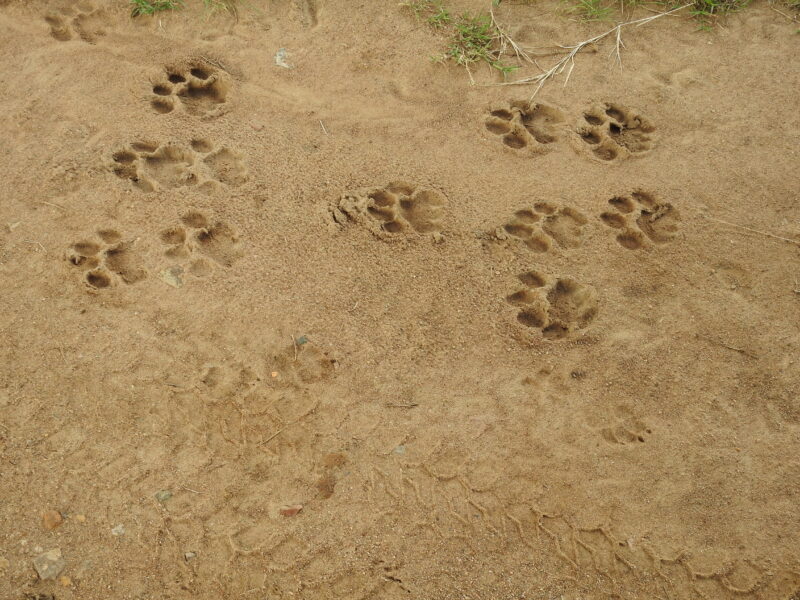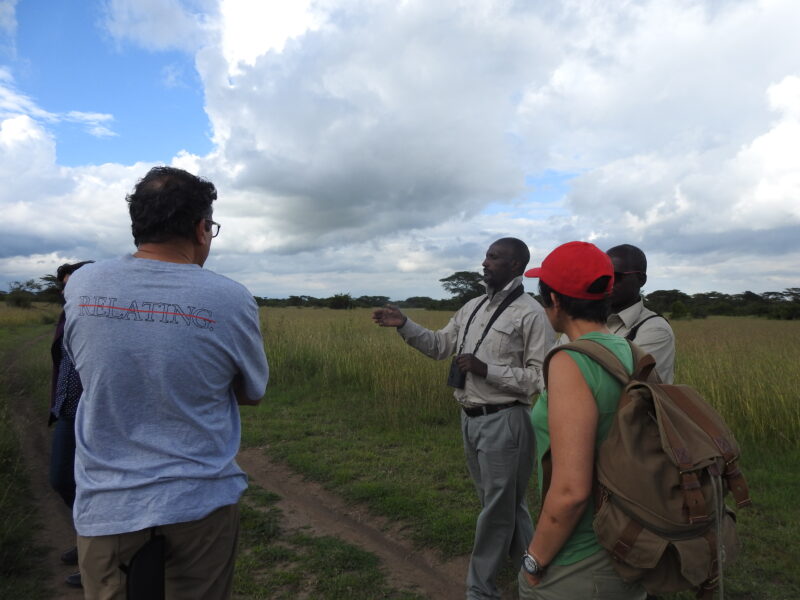Safari guides are the most critical element of your safari experience. Your guide is your host in the wilderness, your connection to the wildlife, and your personal Google Search. Without a great guide, everything about your safari will be lacklustre, and you will miss out on the best experience of your life.
So, what makes a great guide?
- Safety
Wild animals may look very cute and fluffy when seen from the safety of your safari vehicle, but it is very important to understand that a safari is not a visit to the zoo. These are wild and dangerous animals, and as you are in their territory, safety is a matter of being smart and aware of your surroundings. Your guide has spent years, living with wildlife, and studying animal behavior so he should know exactly when and how to approach wildlife. Your safety should be of paramount importance to him and he should know how to anticipate any potential danger. He should also be a skilled driver, so that you never find yourself in a situation where you are stuck and have to abandon your vehicle.
- Considerate of the wildlife
Your guide needs to find that delicate balance between satisfying his guests and not harming or harassing the wildlife. Remember you are in their home and you need to impact their environment as little as possible. This includes garbage disposal, noise pollution, frustrating wildlife while they’re on a hunt, or general harassment of wildlife. Your enjoyment should not come at the expense of hurting something else.
- Knowledgeable
They should have practical knowledge of the wildlife and birdlife, including understanding animal behavior and tracking. Most great guides are also extremely knowledgeable about the flora, and the traditional herbal remedies used by the communities around. Great guides are passionate about their country and the wildlife, and are often wonderful storytellers, with a good sense of humour. These qualities elevate the safari experience from enjoyable to unforgettable.

4.Able to relate to people
A great guide is able to read his guests well, whether it’s sharing lots of information for first time visitors who are eager to experience everything on their first game drive, to seasoned safari goers who are content to ride in comparative silence, in search of that elusive leopard. The best guides open a line of communication with their guests, to understand and also to manage their client’s expectation.

- They are not dependent on the Big Five
What happens when the Big Five have missed the memo and don’t show up on a game drive? Or two or three? Or if it pours incessantly? This is when the great guide makes a difference. Switching to smaller things like why giraffes can’t feed on the same tree for too long, or delving into the fascinating world of termites, keeps guests entertained and engaged. Great guides can also keep younger children engaged and interested.
So how does one ensure you get a great guide?
One of the ways is to check the reviews of the guides at the property you are visiting. You could put in a request for a particular guide, but this does not always work, as sometimes the guide is off on leave, or already assigned to another group.
Another way is to check the certification status of the guides at the camp/lodge you are visiting. In Kenya, the Kenya Professional Safari Guides Association (KPSGA) is the body responsible for these certifications. It is an independent body that works closely with the Ministry of Tourism & Wildlife, the Kenya Wildlife Services, Kenya Association of Tour Operators, the National Museums of Kenya, and various county governments to create certifications for safari driver guides. The certification is divided into 3 levels and progression upwards is based solely on merit.
The three levels are
Bronze Level – candidates should be in the tourism industry. They are tested on basic guiding skills and knowledge of various wildlife subjects. These include birds, mammals, plants, insects & arachnids, reptiles & amphibians, cultures & tribes, geography, history, current affairs, general knowledge, conservation and first Aid.
Silver Level – these candidates must know more than the basics and need to have been actively guiding for 3 years after attaining their Bronze level certification. All the topics in the Bronze level are covered here, but at an advanced level, with the addition of Map reading/Orientation and Ecology.
Gold Level – This is currently the most advanced level available within the KPSGA framework, and they are considered to be among the best guides in Kenya. Here also, the candidate has to have had 3 years guiding experience once they have attained the Silver level. The Gold level exam entails a fair amount of preparation beforehand, with various submissions and vetting required before candidates head off to Naivasha for a 3-day assessment. Full details of the assessment are given to candidates upon application, but in general, this assessment covers essay questions, debates, guiding skills, and field assessments.
A Gold Level guide is the ultimate ambassador for the KPSGA, for their company, and for Kenya as a whole, representing an exceptional level of knowledge and skills in the field, and offering safari experiences of the highest quality.
So now you know!!


Comment (0)